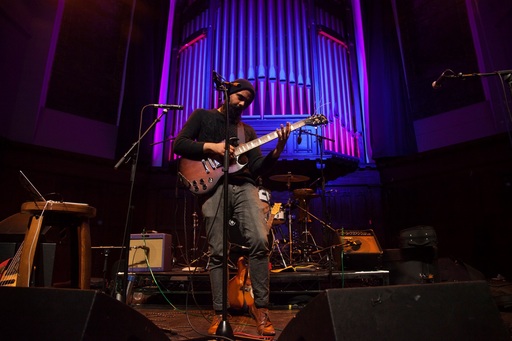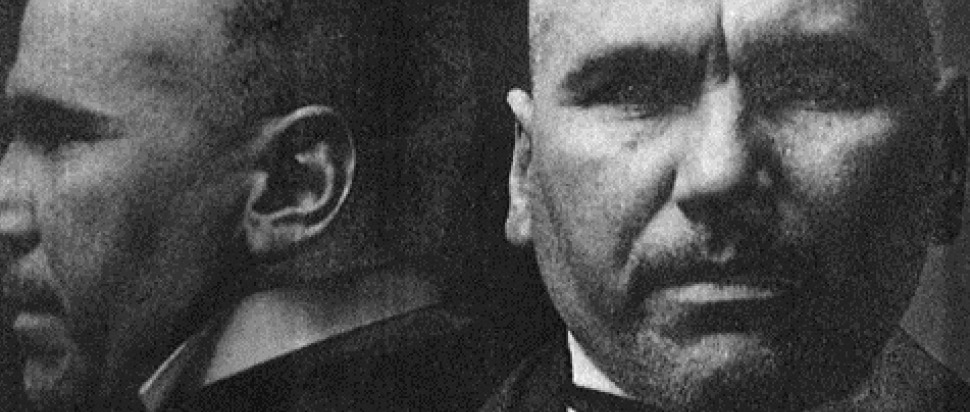John Maclean, Red Clydeside & Radical Remembrance
Ahead of Celtic Connections' John Maclean Centenary concert, we speak with writer and activist Henry Bell and musician Kapil Seshasayee
On 30 November 1923, the pioneer of Scottish socialism John Maclean died from pneumonia aged 44; his body weakened by prison, poverty and the barbarism of the institutions he fought to oppose. Maclean was a leading figure in the Red Clydeside movement, where political radicalism grew along the River Clyde together with working-class opposition to the First World War. One hundred years later, the 2024 Celtic Connections festival will celebrate the legacy of Maclean and the Red Clydeside movement with a tribute concert at the Glasgow Royal Concert Hall on the 19 January.
The concert is part of a wider programme of cultural activity organised around the centenary of Maclean’s death. It's being produced by Maclean’s biographer, writer and activist Henry Bell, who believes firmly that poetry and song have shaped Maclean’s legacy. He tells me: “It was always singers and poets who understood what Maclean meant to Scotland and to the working class.”
Bell describes Maclean as “a radical outsider, who stuck to his convictions no matter what. An anti-war campaigner who was by no means a pacifist. A Leninist who would not let Lenin dictate to Glasgow. He founded the first party in support of Scottish independence but loathed nationalism.” Maclean’s legacy, like the man he was, is complex. It cannot be easily defined in a single cause or memorial.
There is a cairn dedicated to him near his birthplace in Pollokshaws, erected in 1973 to mark the 50th anniversary of his death. Around it unfolds a city in flux; its fabric constantly shifting under a capitalism that erodes communities and amenities. The cairn’s dedication described Maclean as 'the Scottish link in the golden chain of world socialism', asking us to look outwards beyond any narrow frame of singular commemoration.
Maclean’s legacy highlights the significance of radical remembrance in a city often mired by its own cultural amnesia, where an imperial legacy is often remembered over a radical one. “If you walk through the centre of Glasgow you’ll see nothing but the names of slavers, industrialists and aristocrats on the streets,” says Bell. “But Maclean wouldn’t want statues.” Instead, he is remembered in a diverse and lively cultural movement that keeps the Red Clydeside and its heroes alive through poetry, art and song.

Kapil Seshasayee. Credit: Sean Patrick Campbell.
For Bell, the Celtic Connections concert is part of a “vital living tradition that transmits radical memory and ideas. It’s about lighting up the movement that Maclean stood for and seeing how that can guide us today. It’s a dialogue with our own history." It also builds on other events that have celebrated Maclean through song and poetry, such as the 1948 gathering organised by Hamish Henderson and Morris Blythman, heralded as "the first swallow of the spring of the Scottish folk revival." It was here that Henderson’s song John Maclean March was first performed before becoming an anthem of Scottish socialism. Similarly, the 1973 event to mark the 50th anniversary of Maclean’s death featured poets Edwin Morgan and Hugh MacDiarmid alongside music by The Laggan.
The centenary concert lineup includes Billy Bragg, Karine Polwart, Eddi Reader, Paul McKenna, Siobhan Miller, Karan Casey, Megan MacDonald, Ewen Henderson and Jackie Kay. Their collective presence on a Glasgow stage will once again celebrate Maclean and the Red Clydeside movement with songs and poetry that advocate solidarity, the fight for social justice and the need to question and challenge authority.
Among them, Kapil Seshasayee, an Indian fusion musician renowned for protest songs that challenge the Indian caste system, presents his commissioned work, Surrounded by my Friends. Inspired by the memories of his own Clydebank upbringing and walking by Solidarity Plaza, Seshasayee’s song captures the essence of finding hope in solidarity. “The central lyrical image that I conjured up is that of feeling of being a bit lost. Then you happen upon Solidarity Plaza and you’re surrounded by friends whose goals and dreams align with yours. And you find meaning in that. And new hope.”
Seshasayee will bring his own experience to the diverse stage where each values Maclean for different reasons. “Songs are fundamentally storytelling devices,” he tells me. “Whether we’re singing about John Maclean or anti-caste musicians like Bant Singh in India, the message isn’t that different. The fact that they’ve passed away long ago doesn’t change their scope of influence.” The concert is a celebration of what these figures mean to us now looking forwards.
Maclean’s enduring resonance transcends time and avoids narrow alignment with any one cause. In Glasgow today, we remember figures like Maclean when organisations such as the Living Rent campaign fight against unfair treatment of tenants and rally for better housing conditions. Songs in his memory are sung by the protestors who line the streets to oppose the bombardment of Gaza. The singers, writers and activists that remember him embody Maclean’s call from the dock to fight for the “right to protest against wrong, the right to do everything that is for the benefit of mankind.”
Red Clydeside: John Maclean Centenary Concert takes place at Glasgow Royal Concert Hall, 19 Jan
